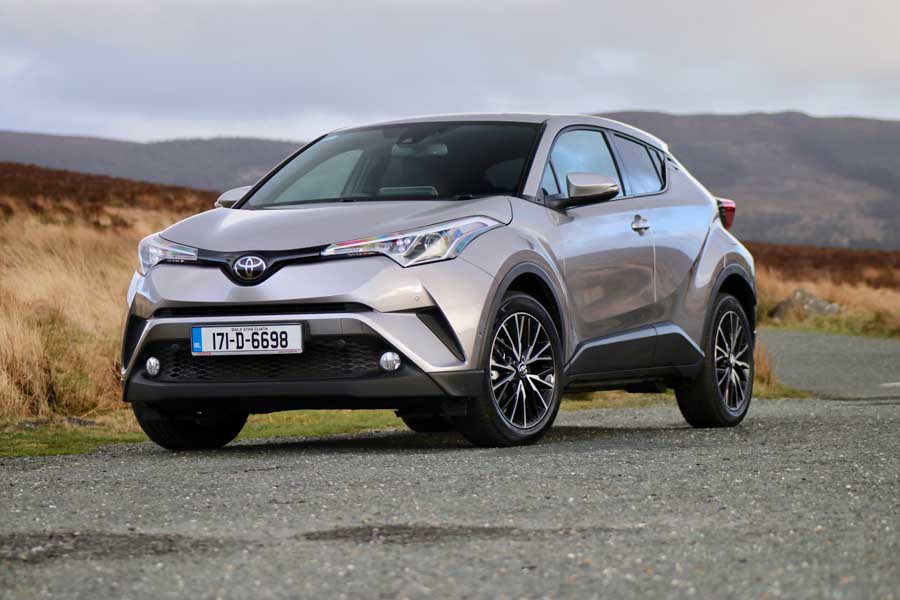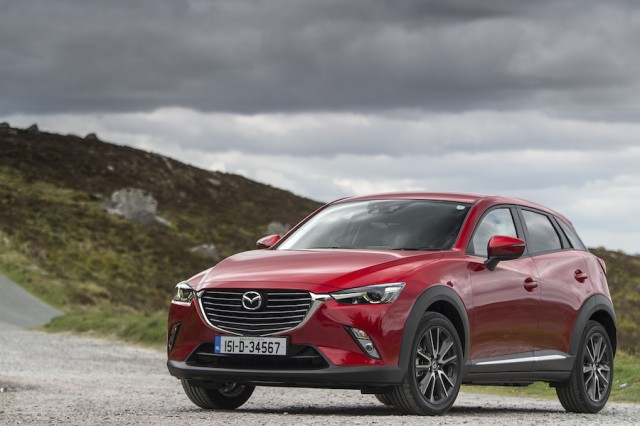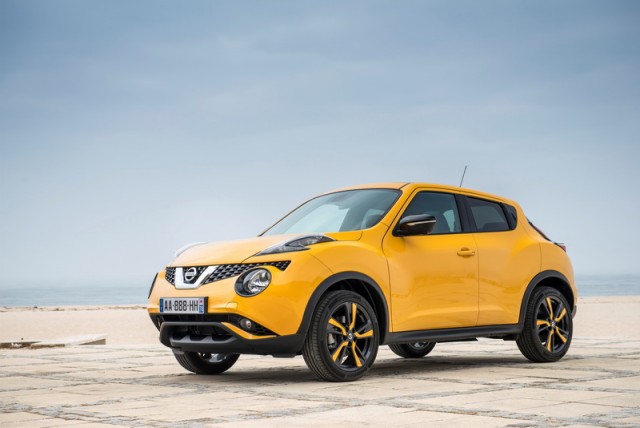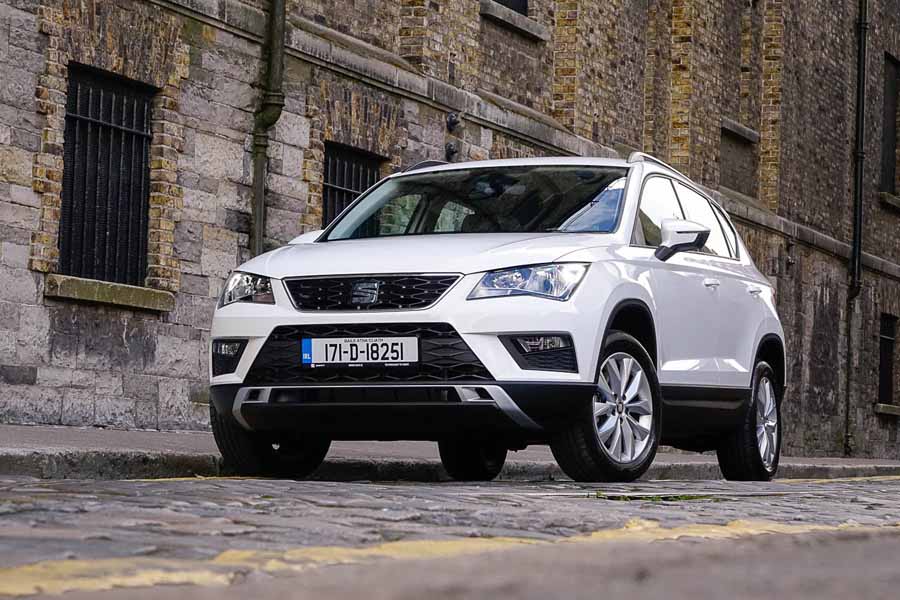Good: cool image, top-notch handling.
Not so good: feels cramped in the rear, manual-only with this engine.
If proof was ever required that you really don't need to have a diesel engine in a small crossover, then the Toyota C-HR is Exhibit A. Its styling is light years ahead of what we've typically come to expect from Toyota, and following on from the futuristic Prius, the C-HR looks like it just rolled off a motor show stand. Its wide track and low-slung roofline redefine what a crossover should be.
In almost any spec it looks excellent, and the rear doors, with hidden handles mounted up near the roof, add to the car's coupe-like side profile. But as good as it looks from the outside, the rear doesn't feel spacious when compared to others cars in the segment. Legroom isn't the issue here; it's more to do with the sloped roof and tiny, high-set rear windows. These two, combined with standard-fit privacy glass, make the back seats feel dark, and it's enough to make anyone that is claustrophobic feel uncomfortable. Parents of small children take note, as this is one aspect that has travel sickness written all over it.
However, the rear is one of the only downsides to what is otherwise one of the best crossovers to have emerged since the first-generation Nissan Qashqai - a car that defined the segment. The Toyota's quirky looks prove how unique styling can be done successfully (take note, Nissan Juke), and the C-HR goes some way towards dispelling the company's image of the car world's equivalent of white goods.
It's not just the bold lines outside, either. In the cabin, the quality of the materials is much better. The interior looks and feels well made, with gloss black trim panels and a steering wheel that sits nicely in hand. This shows how Toyota has improved in this area, but it hasn't completely nailed it.
True, much of the switchgear feels chunky and solid (and you get a sense that everything will still be working in ten years' time), and while Toyota's infotainment system offers Bluetooth and USB connectivity, it lacks a more user-friendly and intuitive interface. You can't have Apple CarPlay or Android Auto to connect your smartphone, either, but when it comes to making and receiving calls, the hands-free audio quality is quite good.
Undoubtedly, the C-HR's high point is its chassis and how well it drives. The suspension is set just on the firm side, but even on larger wheels it manages to absorb the bumpiest of roads. Unlike many non-sporting Toyotas of the past, the C-HR is pleasant to drive. Its 1.2-litre engine has just enough power to make it feel nippy, and it's far more responsive than the hybrid version.
Sticking to a manual transmission and without the hybrid's battery and associated hardware makes it around 60kg lighter. If you mainly do urban driving and the odd motorway journey, then this engine has more than enough performance to suit your needs. We managed to get close to the official 6.0 litres/100km combined fuel consumption, but that's still a bit off what is supposedly possible in the C-HR Hybrid. However, the 1.2-litre petrol model does have a slightly lower retail price, although this is offset by the fact it will cost €100 more per year to tax.
There's a lightness to the C-HR's steering that is welcome around town and when parking. But unlike some rivals that can feel almost entirely disconnected from the axle, the Toyota has enough feel to satisfy anyone that might have a keener interest in driving. The gear changes are precise, too. Sure, it's no Mazda MX-5, but the weight and feedback from the steering and gearchange are far better than most other cars in this class.
On the move there's only a small amount of road noise, and nothing to the extent that would bother you over a longer distance. From a driver's perspective, the C-HR feels like one of the most complete packages in the segment. If you're looking for an antidote to all the ill-feeling towards diesel-powered crossovers, then the Toyota C-HR could be just the medicine you need.


























